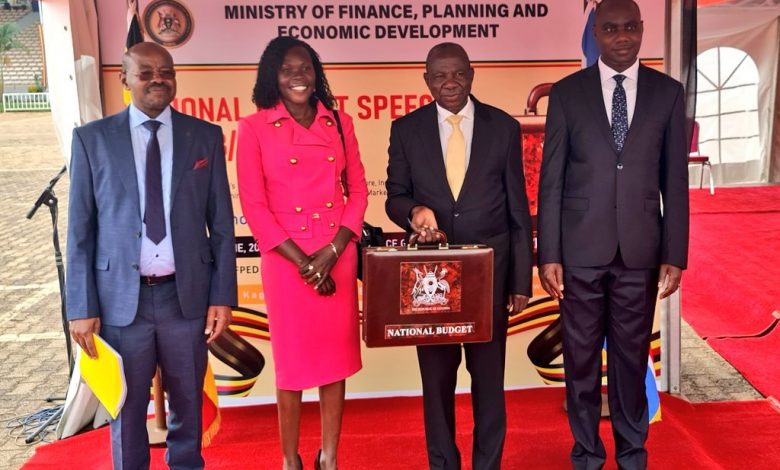Ugandans request MPs to be considerate when making the national budget
Ugandans have requested Members of Parliament (MPs) to be considerate towards final consumers whenever they are formulating the national budget for the country.

Ugandans have requested Members of Parliament (MPs) to be considerate towards final consumers whenever they are formulating the national budget for the country.
The budget amounting to Shs52trillion has brought about mixed reactions from the general public with many Ugandans complaining about the increase in price of fuel and basic commodities in the country.
The Minister of Finance Planning and Economic Development, Matia Kasaija, has presented to parliament and the public the national budget for the financial year 2023/2024. It has been increased from Shs48. 1 trillion to Shs52 trillion.
Members of the public like John Oryem, a businessman in Kampala told Charmar News that an increase in prices of fuel towards the end of last year impacted the final consumer of different products.
“Diesel to be above petrol is something unbelievable because tracks use diesel to carry food from the village to Kampala. So, if a track is buying a litre of fuel at Shs6, 000, how much do you expect the producer bringing his food to Kampala is going to incur? That means the noble person down here is going to carry the cross,” he said.
Sande Akram, a resident of Nakawa, explained that before members of parliament decide what amount should be let out for each sector, they should always be considerate of how an increase in the budget allocation may affect the poor citizens.
“Am requesting the MPs to look at the people who are down on the ground. Some people are suffering a lot. Transport is too much. If you look at the economy, now and then everything is increasing at a high speed.
“So am requesting the MPs, in parliament to reduce on the budget and be on our side because we can’t go straight to the president and talk to him,” he noted.
The issue of private schools raising their school fees is also one of the key issues that Jane Nakito, a street vendor, protested about. She said the budget would have prioritized education since most parents prefer taking their children to private schools, yet they are so expensive to afford.
“Sometimes you find that these private schools have really good standards. For me I would prefer to take my child to private schools because their standards are a little bit okay,” she said.
Kigenyi Adam, a taxi driver, said since the government is aiming at strengthening infrastructure, then businesses are most likely to prosper. With this, he thinks the budget is good enough to help Ugandans.
In its January 2023 report on the Budget Framework Paper (draft national budget) for the next financial year of 2023/2024, Parliament implored the executive to ensure more resources are allocated to the productive sectors of Agriculture, ICT, tourism, and industry to improve the performance of NDPIII.
The 2023/2024 national budget will be the fourth budget for the implementation of the five-year 2020-2025 third National Development Plan (NDPIII) which among other targets intends to reduce Uganda’s poverty rate to 15% and to increase the country’s per capita income (average earning of every Ugandan annually) to $1300 (Sh4.8m).
The latest statistics put Uganda’s per capita income at $1052 and the poverty rate at 20.3%. World Bank last month released a report indicating Uganda has not made significant progress in poverty reduction in the last 10 years.







